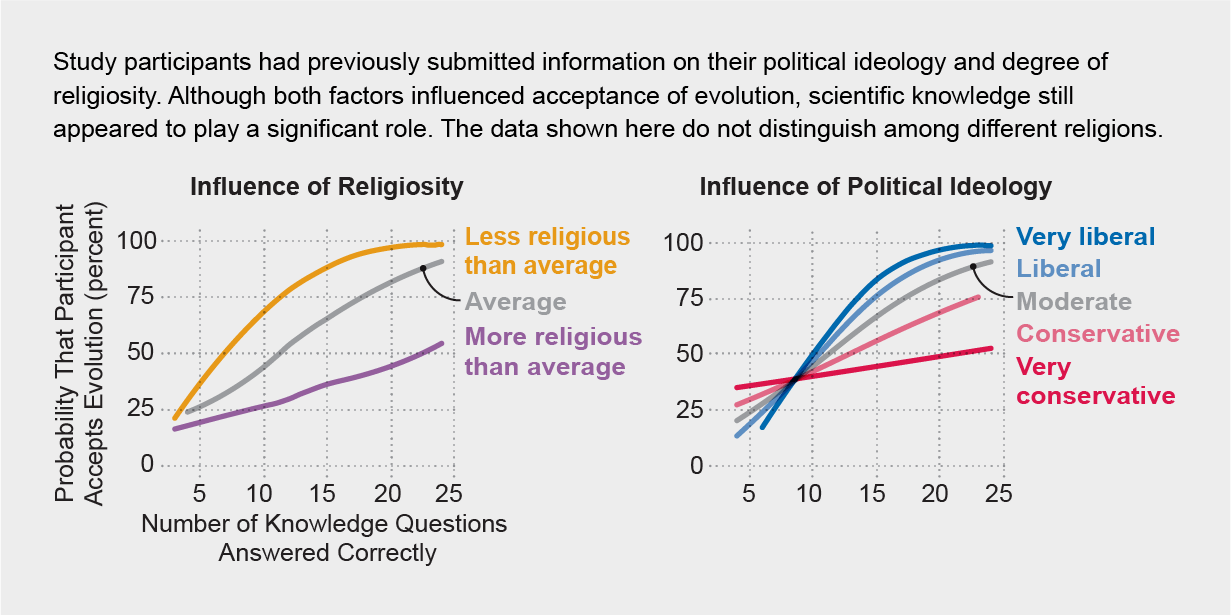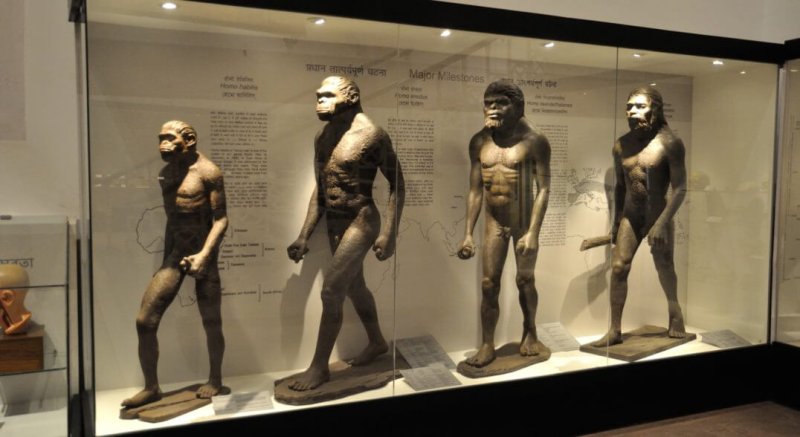Science denialism can seem intractable, and studies on the topic are seldom encouraging. For example, research out of Yale Law School suggests that when people form their opinions on contentious topics such as climate change or evolution, political or religious values trump knowledge of the concept.
A study published in March in BioScience begs to differ, at least when it comes to evolution. Researchers at the University of Pennsylvania and their colleagues measured participants’ knowledge of evolutionary theory, as well as their acceptance of evolution as fact. They found a significant link between understanding the fine points of the theory and believing in it, regardless of religious or political identity.
Unlike earlier research that involved only high school or college students, the demographics of the 1,100 subjects in the new study better approximated those of the overall U.S. population. The researchers also used more nuanced language in their questions to distinguish between subjects’ intellectual grasp of evolution and their personal feelings toward it. It remains unclear whether science education leads directly to increased acceptance of evolution, but the Penn study supports this possibility.

Read full, original post: People Who Understand Evolution Are More Likely to Accept It































